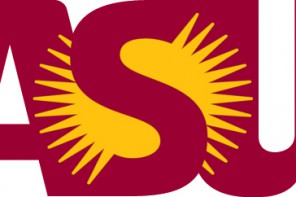
Tammy Bjelland owns Shenandoah Valley Language Services, a business that provides language education consulting and instruction to organizations around the world. She is the host of the Business of Language Podcast and blogs about linguapreneurship at www.tammybjelland.com
When I started my graduate program in Spanish literature, I never dreamed that I would own my own business one day. All I knew at that point was that I wanted to teach Spanish. Even though I wasn’t certain in what capacity I would teach, it never crossed my mind that there were options outside of becoming a college professor or teaching in a public or private K–12 school.
My journey to small-business ownership was not the result of one concrete decision to ditch academia and become an entrepreneur. I’ve arrived at my current position because of a series of smaller decisions: taking a nonacademic job developing content for online language courses, then taking a full-time job teaching Spanish at a university, then forming an LLC (limited liability company) to work as an independent contractor so I could continue working on curriculum design projects, and then deciding to quit my PhD program and leave the university language classroom behind for good.
All those decisions built up the momentum I needed to take the plunge into full-on self-employment.
And I haven’t looked back.
Being on my own is a fabulous fit for me. I love the freedom it gives me to choose what work I want to do and for whom. I love that every day is completely different. I love that I am constantly learning, that I get to choose what I learn about, and that I can see visible results in the professional opportunities that arise from that effort. It allows me to be creative to a degree I never thought possible when I was on track to complete a PhD. It’s not always easy, of course—there are multiple times I have wondered what the heck I’m doing. However, I have never once regretted leaving academia behind, and the more experience I gain on my own, the more I’m convinced that this is the professional path for me. I get to combine my love of Spanish and my passion for educating, and I get to decide how that combination looks and feels.
For those of you who are considering your options outside academe, entrepreneurship is an incredibly rewarding path to choose. If it intrigues you and you think it might be a good fit, then I say carpe diem. Some people might tell you that you should “know for sure” whether entrepreneurship is right for you before you take the plunge. I disagree completely with that advice, because I think, as with almost anything that you have to learn, the best teacher is experience.
That said, there are two must-haves if you want to go out on your own:
- I probably don’t need to mention this to a readership used to deciding the parameters of their own long-term projects, but it’s worth noting that you have to be able to make your own decisions about what to do, when to do it, and how. And then actually do it.
- You absolutely must be comfortable thinking and talking about money. The next step here is to be comfortable asking for money. And then asking again, until you get paid. This has taken me a lot of work, but I knew I had to make this a priority if I wanted to survive financially.
So if you’re OK with learning how to talk about and ask for money, and you’re fairly certain you can create a plan for yourself and stick with it, let’s move on to the first five steps to starting a language business.
STEP 1. Brainstorm.
Create a list of what you enjoy doing, what you’re good at, what you are good at but don’t like doing. Consider your current job or any jobs you’ve had: What did you hate about it? What did you love? What were you ambivalent about? What does your ideal career look like? Do you like research but hate teaching? Love teaching but hate research? Love teaching but hate the content you have to teach? What hobbies do you have? If money were not an issue, what would you do every day?
STEP 2. Create a list of viable business options.
You’ve got your list of what you like to do, what you would enjoy doing for money. Now it’s time to brainstorm some actual business ideas that could combine all those. With degrees in languages, and experience in teaching and/or research, offering consulting, training, or writing services are three contexts that could combine with your passions to create a viable business. Turn to Google or another search engine to find whether other people are making money from this idea—if they are, it’s because there are people willing to pay for what they’re selling.
STEP 3. Choose one good business idea from that list.
What makes a good business idea? There needs to be a market for it, and you need to be passionate about it. I’m not saying that this has to be the thing you do for the rest of your life, but the mission behind your business has to at least get you out of bed every morning, even through rough patches.
STEP 4. Decide if you want to be on your own or have a team.
Decide if you want to do this on your own as a freelancer/solopreneur or if you want to start out with a team. This may eventually change, of course, but having an idea of whether you want to work with other people right away will help you complete the next step.
STEP 5. Write a business plan.
If you are just starting out in the business world, as I was, this can seem daunting. Just look at the outline suggested by the US Small Business Administration (which is one of the best resources out there, by the way!). I made the initial mistake of thinking that the business plan had to accurately predict everything that my business would eventually become; I saw it as not that different from a dissertation. Lesson learned: IT IS NOTHING LIKE A DISSERTATION. It is a living, breathing document that you are meant to adapt as your business grows. Think of it as a very robust and detailed to-do list, with the goal of financial and creative freedom. As researchers, it’s easy to get bogged down in trying to learn everything about writing business plans, marketing, etc. While this curiosity drives us to be well-informed, it can keep us from making decisions and getting things done. So set some limits for yourself—even if there’s technically no one else to hold you accountable when you’re self-employed, deadlines are more necessary than ever for completing important tasks like this.
Beyond these first five steps, I highly suggest you go through the ten steps suggested by the US Small Business Administration (they start off with the writing of the business plan). Keep in mind that some of these steps may require the assistance of a professional, such as an attorney or an accountant.
If you need additional guidance on steps 2 through 4, join me for a free webinar on 18 June about business ideas for language lovers. I’ll go through some concrete examples and case studies and then discuss how to decide on your list and pick your top choice. It’s a live webinar, so come armed with questions! You can register at this link, and please send it along to anyone else you know who might be interested in combining their love of language with a business idea.
Webinar Details:
Business Ideas for Language Lovers
Thursday, 18 June
3:00 p.m. EDT







I want to start an academia or small institute in Buenos Aires, Argentina. However, what I have in mind is preparing students in the TOEFL iBT, IELTS, GRE, SAT, TOEIC, CAE, and GMAT. So far, it-s only me, but I would like to offer other services like Business English and alike(Basic English, etc.).
I have been doing this for 5 years (TOEFL iBT, etc), and I’m doing fine, but I would like to expand hiring instructors and renting a small office for a 40 students maximum capacity at one time.
Do you have any suggestion, advice, …
Thank you very much!
Pablo Luchetti, BS MS MBA
Instructor
Buenos Aires
Argentina
Are you still doing this?
Ive been teaching Spanish for Verbling but I want to start doing that by myself.